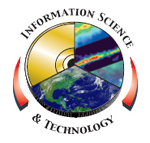
Please Note: The content on this page is not maintained after the colloquium event is completed. As such, some links may no longer be functional.
Peter Bock
Project ALISA: Adaptive Learning Image and Signal Analysis
Wednesday, April 21, 2004
Building 3 Auditorium - 3:30 PM
(Refreshments at 3:00 PM)
Professor Peter Bock, will talk about Project ALISA: Adaptive Learning Image and Signal Analysis. Based on collective learning systems theory, a network of adaptive learning cells has been applied to a difficult image processing task: the detection and classification of structures and objects in images. Known as ALISA (Adaptive Learning Image and Signal Analysis), this image and signal processing engine has been designed, implemented, and tested at the George Washington University with major funding from the German firm Robert Bosch over the last decade. The design of the parallel-processing ALISA system was motivated by the multi-path cortical-column architecture and adaptive functions of the mammalian visual cortex.
Based on training with a few known exemplars, the ALISA Texture Module has demonstrated excellent detection of anomalies and classification of textures in test images. Applications include the detection of intruders in complex environments, the detection of vehicles in desert terrain, the identification of defective motors from their acoustical signatures, the detection of aneurysms in MRI heart images, and the classification of benign and malignant cells in liver samples and mammograms.
The ALISA Geometry Module classifies geometric structures in images by extracting categorical features from the texture class maps generated by the Texture Module. In one mode, the Geometry Module learns to recognize and classify a set of simple "canonical" geometric concepts, such as horizontal, vertical, slanted, curved, intersecting, interrupted, symmetrical, and the like. Very few training samples are required to generalize these symbolic concepts. Alternatively, the Geometry Module can be used to learn and classify "secular" geometric concepts, such as signatures of different persons, text and graphics structures in manuscripts, different kinds of boats, open and closed doors, different kinds of coins, different kinds of fruits, and different brands of batteries.
The ALISA Vector Module classifies signals in high-dimensional spaces based on training with vectors of feature values. Typical applications include the detection and prediction of faults in the Hubble Space Telescope onboard systems, long-term trends in stock market data, and classification of the physiological state of vehicle drivers to detect drowsiness and fatigue.
The ALISA Shape Module classifies shapes in images based on the information in geometry class maps. Completely independent of parameters, it can learn to recognize canonical shape concepts, such as isosceles triangles, trapezoids, rectangles, symmetric n-gons, convex shapes, concave shapes, etc., and secular shape concepts, such as faces, human bodies, Latin letters, bottles, cars, airplanes, etc.
Long-term research focuses upon the extension of ALISA to successively higher adaptive levels of cognition: textures >>> geometries >>> shapes >>> components >>> objects >>> scenes, using feedback from higher to lower levels for disambiguation and the assignment of symbolic value. Toward this end, the ALISA Concept Module is currently under development. In the meantime, the texture, geometry, and shape class maps generated by ALISA can provide symbolic operands for classical rule-based systems to classify more complex concepts.
Professor Bock received his undergraduate degree in physics and mathematics from Ripon College in 1962. After completing his graduate studies at Purdue University, he joined the research faculty at IIT Research Institute (IITRI) in Chicago, where he developed high-speed computer simulations for the analysis of the NASA Apollo Earth and Lunar orbital remote-sensing missions. Since 1970 Professor Bock has been a full-time member of the Computer Science faculty at The George Washington University, where he pioneered the development of collective learning systems theory, an adaptive learning paradigm for artificial intelligence. Currently, he is also the Principal Investigator for Project ALISA at GWU, currently funded by the Defense Threat Reduction Agency (DOD). In 1993 World Scientific Publishing Company published his book, The Emergence of Artificial Cognition: An Introduction to Collective Learning, and in September 2001 Academic Press published his book, Getting it Right: R&D Methods for Science and Engineering. Professor Bock's long-term research goals focus on the design and creation of an artificially intelligent being whose cognitive capabilities are on a par with human beings.
IS&T Colloquium Committee Host: Cynthia Cheung
